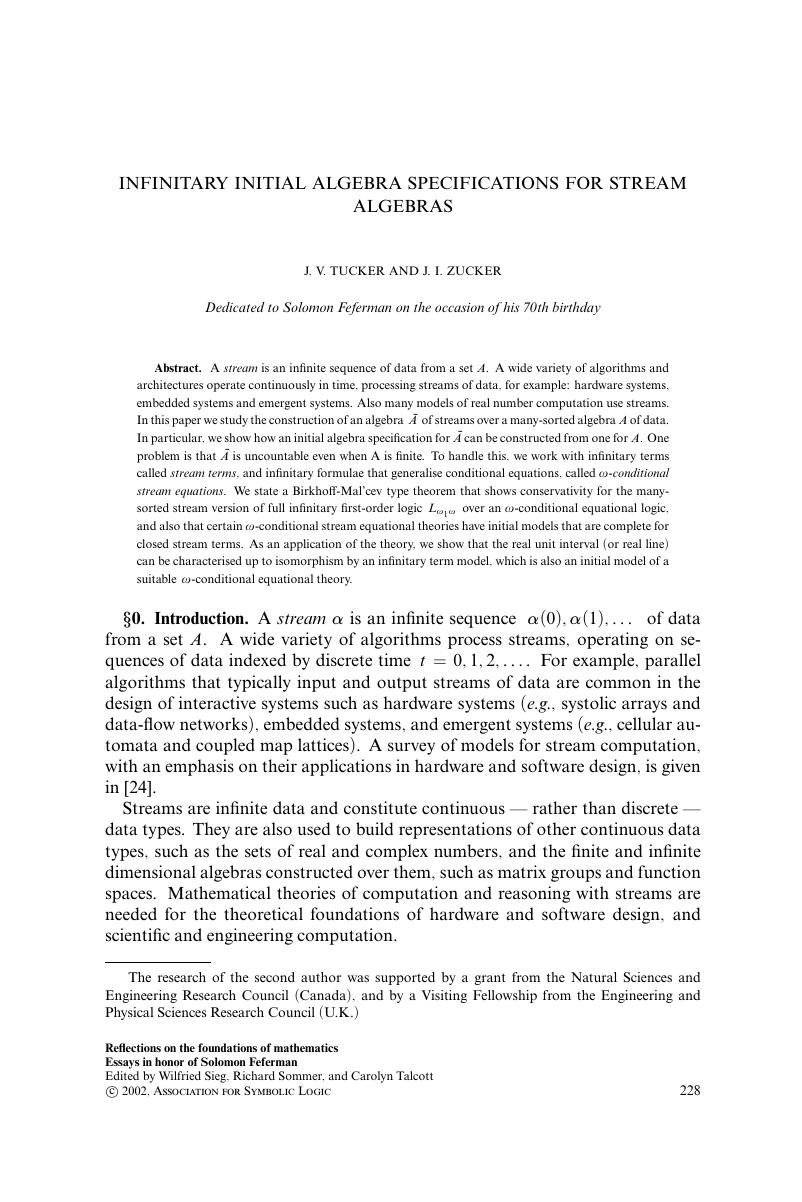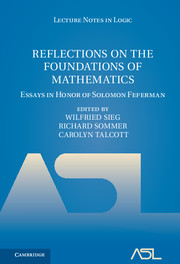Book contents
- Frontmatter
- Preface
- Contents
- PART I PROOF THEORETIC ANALYSIS
- PART II LOGIC AND COMPUTATION
- A pragmatic interpretation of substructural logics
- Computational complexity and induction for partial computable functions in type theory
- Computability theory: structure or algorithms
- Three processes in natural language interpretation
- Infinitary initial algebra specifications for stream algebras
- PART III APPLICATIVE AND SELF-APPLICATIVE THEORIES
- PART IV PHILOSOPHY OF MODERN MATHEMATICAL AND LOGICAL THOUGHT
- Symposium program
- References
Infinitary initial algebra specifications for stream algebras
from PART II - LOGIC AND COMPUTATION
Published online by Cambridge University Press: 31 March 2017
- Frontmatter
- Preface
- Contents
- PART I PROOF THEORETIC ANALYSIS
- PART II LOGIC AND COMPUTATION
- A pragmatic interpretation of substructural logics
- Computational complexity and induction for partial computable functions in type theory
- Computability theory: structure or algorithms
- Three processes in natural language interpretation
- Infinitary initial algebra specifications for stream algebras
- PART III APPLICATIVE AND SELF-APPLICATIVE THEORIES
- PART IV PHILOSOPHY OF MODERN MATHEMATICAL AND LOGICAL THOUGHT
- Symposium program
- References
Summary

- Type
- Chapter
- Information
- Reflections on the Foundations of MathematicsEssays in Honor of Solomon Feferman, pp. 228 - 248Publisher: Cambridge University PressPrint publication year: 2002



